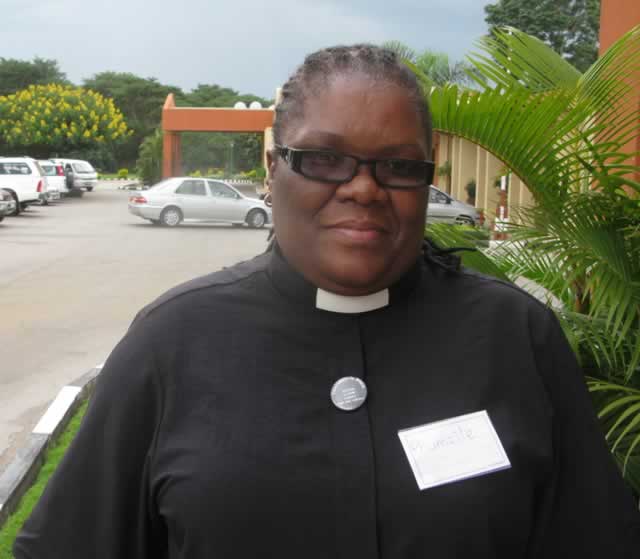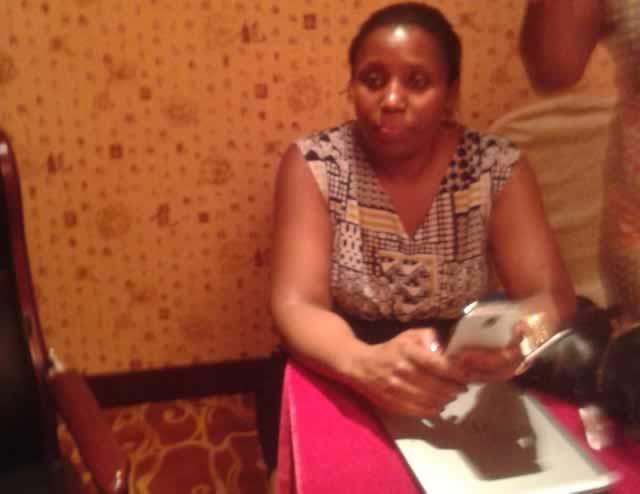Communities face up to HIV, Aids
from nearby schools also graced the occasion where food and drink was in abundance. Children played hide and seek on full stomachs.
What was most pleasing was that my grandparents, the ones we had gathered to commemorate, had lived to ripe ages, with Sekuru Madzinga clocking up a century. As we sat down after lunch, I was surprised at the level of openness that the community has embraced. One of the elderly women who attended the function well after midday was greeted by her neighbour and asked why she had come late for the feast.
Their conversation went like this: “Long time Mbuya vaChido, you are nowhere to be seen these days. Could it be that you are spending the wealth your late husband left you or you have a young lover?” asked one woman.
The elderly woman answered: “I am well and you talk too much, could I still be enjoying wealth left by Sinyoro, who died over two decades ago. I have worked hard that is why I am able to look after all the orphans I live with.”
She went on to explain that she needed to prepare food for her son who is bedridden before asking the cattle herder to take over before she left.
“I have a bedridden son who needs to be taken care of. The cattle herder will give him a bath in the afternoon but I had to prepare his meal before I came here. I also had to make sure that he had taken his medication,” she said.
The old woman went on to say she had no one to look after her son after the death of his wife hence she was now the caregiver.
“This is the burden that I have to carry ever since HIV and Aids has settled in my household,” said the woman.
The two chatted and rebuked each other that 10 years ago they would have called in a sangoma or a prophet as to find out the cause of the sickness but not these days.
“Long back we would have wasted cash and even cattle on traditional healers or prophets who tell us lies that so and so was bewitching my children but not anymore,” she said.
“My son’s wife died from an Aids-related illness so did his two young children who never lived to two years. So no one can tell me that someone is bewitching my son, he is HIV positive.
“It is unfortunate that when he got better after the death of his wife, he went to Musengezi River for gold panning he got too comfortable and with money in his pocket.
“He would get drunk, forget to take his evening tablets and that is why he is back home and very ill this time around,” she said. Defaulting on medication makes the HIV virus mutagenous, meaning it replicates and is no longer treatable using the same drugs. When this happens one has to be moved to the next line which is more expensive as compared to first line drugs which range from US$10 to US$15. The second line costs around US$80 to US$120 depending on the drug.
I got interested in their conversation and introduced myself as a journalist. They were glad to share their experiences and even asked that an investigative journalist be sent because faith healers (tsikamutanda) was causing untold suffering in the community and stealing in broad daylight. The other woman echoed similar sentiments.
“It’s true tsikamutanda is causing neighbours to hate each other for no apparent reason. He is just a thief, he came on foot and is now driving a flashy car. Can you believe it that he said my two daughters’ illness was due to a neighbour who had a goblin and wanted their blood.
“I refuted it and brought out their medical cards which showed that they were on ART treatment. The older girl is also on TB treatment so no one was bewitching them, I told them to leave and refused to pay the asked fee,” she said. The women said they were finding it difficult to feed, clothe and educate the orphans they were looking after.
“I have five orphans and they are all of school-going age. They attend Mucheri Primary School and I have been thrown back to motherhood when I am supposed to be a grandmother,” she said.
The second woman said her situation was worse since one of the four orphans was still an infant.
“I left the baby with her sisters since it is a Saturday and they are not in school and it this was a school day I would have brought her along with me. Her mother died less than a year ago,” she said.
“Today even the councillors and MPs say it at their meetings. Everyone needs to get tested and know where you stand. Even as I speak I have been tested because I took care of sick children without proper protective clothing so anyone is susceptible to HIV infection,” she said. The women said that their harvest was not that good in the last season and the poor prices offered for cotton worsened their plight.
“Our harvest was low and we are already running out of grain. Even those who had maize and cotton are not spared because the buyers are paying low prices which makes it difficult for them to be back in the fields,” they said. “We are appealing for supplementary feeding, be it in school because some of us did not harvest enough,” they said. One woman, who is in her fifties, chipped in saying the hard times did not only affect the elderly as she also was unable to feed her family or six.
“It is not only the elderly who are finding the going tough, we are not able to have two full meals a day. We now resort to one meal in the evening and the school kids just have porridge before they go to school,” she said.
Most of these families live way below the poverty datum line. It’s sad that old women in their 70 and 80s have their roles turned back and with little or nothing for an income, they have to look after orphans on shoe-string budgets.
According to UN data (2010), there were approximately 1 000 000 orphans in Zimbabwe who lost their parents to HIV and Aids.
This paper on Wednesday reported that more vulnerable families will be added to the list of beneficiaries for the ongoing Government cash handouts programme.
United Nations Children’s Fund child protection specialist Ms Elayn Sammons said the beneficiaries for the programme’s second phase would receive cash transfers.
“The design for the cash transfer makes reference to the current food basket offered by World Food Programme to vulnerable households as well as the payment offered by the public works scheme currently run by Government,” she said.
Ms Sammons said the majority of the beneficiaries from the first phase were children who accounted for 64 percent. Orphans accounted for 27 percent, 12 percent were female adults, 6 percent were male adults, 19 percent were the elderly and another 19 percent were the disabled or chronically ill.
The beneficiaries were selected from Mangwe (Matabeleland South), Umguza (Matabeleland North), Mzilikazi (Bulawayo), Epworth (Harare), Makoni (Manicaland), Rushinga (Mashonaland Central), Goromonzi (Mashonaland East), Kariba (Mashonaland West), Chivi (Masvingo) and Zvishavane (Midlands), reported The Herald.
Zvimba is conspicuous by its absence from the list of areas earmarked for the cash transfers.
The families there need assistance and the orphans are likely to drop out of school if help is not offered on time. Very few, if any, children are willing to go to school on an empty stomach.
[email protected]









Comments